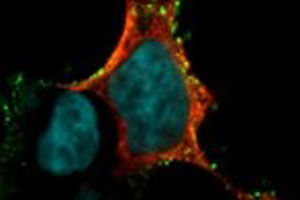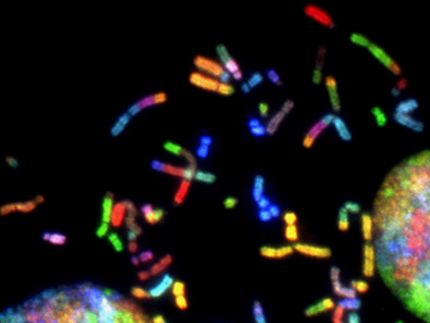Control of cellular recycling pathways
Researchers shed light on the highly organized and complicated regulation of cellular turnover
Advertisement
Together with researchers from the University of Rome/Italy and the Italian National Institute for Infectious Diseases scientists from the Freiburg Institute for Advanced Studies (FRIAS) and the Center for Biological Systems Analysis (ZBSA) shed light onto the highly organized and complicated regulation of cellular turnover.

© Dr. Jörn Dengjel
Bio-molecules within human cells are constantly being synthesized and degraded. This turnover is important for basic cellular processes, but it also plays a role in stress responses. Its deregulation has been linked to several diseases, amongst others cancer and neurodegenerative disorders like Parkinson’s. By combining analytical and cell biological approaches, the international research team between Freiburg and Rome identified a new pathway regulating protein interactions and their influence on cellular recycling.
One of the recycling pathways, autophagy or cellular “self digestion”, has been a focus of Jörn Dengjel’s research for many years. In times of poor energy supply, this self digestion helps to secure the cells’ survival. A protein that plays an important role in autophagy regulation is AMBRA1. In their paper, the Freiburg-based research group identified a dynamic phosphorylation site on the protein AMBRA1. Dengjel’s Italian colleagues could further show that during growth factor shortage phosphorylation on this specific site is removed, activating AMBRA1, which in turn leads to increased cellular turnover and survival of the cells.




















































